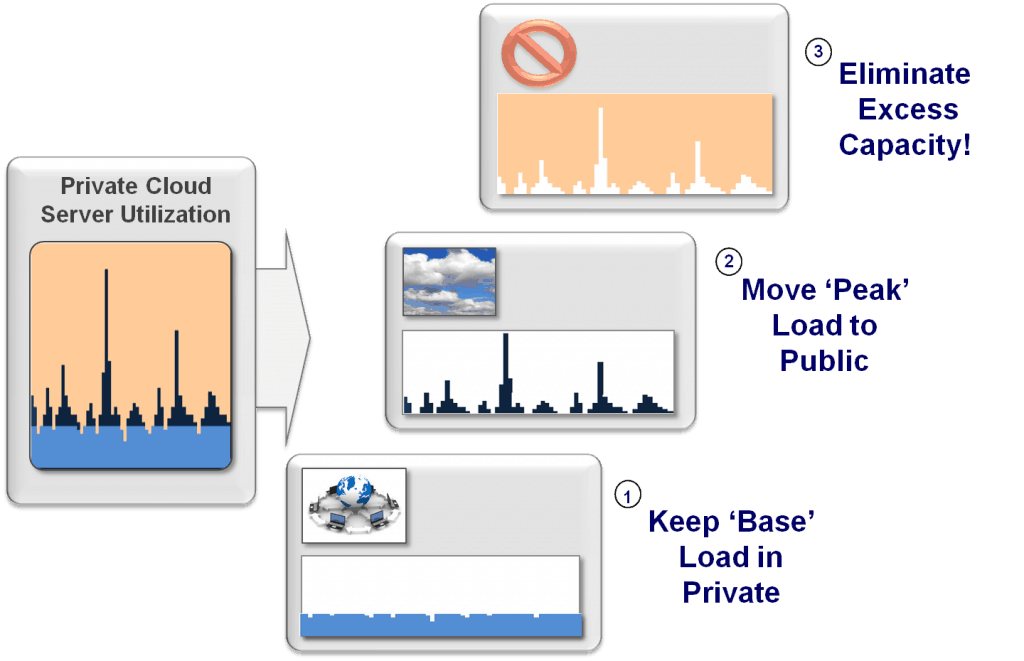Blog
The Future of Blockchain in Banking and Financial Services and FinTechs

Blockchain technology promises to transform banking, financial services, and FinTechs by enhancing the digital customer experience while lowering costs and reducing data risks in a secure environment. Service providers investing in blockchain capabilities will win in the long run. Read on to discover the future of blockchain in this blog.
A brief history of blockchain in banking and financial services and FintTechs
Since its introduction in 2008, blockchain has established itself as a key to optimization. The banking industry is redefining itself through emerging technology that is improving products, customer services, and operational efficiencies.
In recent years, blockchain adoption has increased in banking and financial services and the emerging FinTech industry. Legacy banks and nations are now following the wave. Blockchain also is being used through Decentralized Finance (DeFi) and Decentralized Apps (DApps).
Let’s explore what blockchain is, why it’s important for this industry, and how the technology can further improve banking.
What is blockchain?
Blockchain is a distributed ledger that records transactions in an immutable, cryptographically secure way. It has been used to move money between parties without the need for third-party verification or intermediaries.
The technology works by creating a network of computers (or nodes) connected through the internet. Each node on this network stores copies of transaction data that cannot be changed or deleted. It also cannot be falsified, therefore serving as an invaluable tool for verifying authenticity and ensuring security when conducting financial transactions online.
The banking sector has been one of the first industries to realize the potential of distributed ledger technology (DLT), a protocol that enables the secure functioning of a decentralized digital database.
McKinsey estimates blockchain is expected to save around US$4 billion in cross-border payments and US$1 billion in retail bank operating costs and reduce regulatory fines by US$2-$3 billion and annual losses from fraud by US$7-$9 billion.
Benefits of blockchain technology in banking
Blockchain technology has the potential to improve the banking industry in many important aspects as illustrated below:
| Key levers | Benefits |
| Cost reduction | Using blockchain reduces costs by allowing banks to process transactions faster while also eliminating the need for intermediaries that charge fees for their services. This can save money on transaction processing, leading to lower operating costs. |
| Energy conservation and ESG tracking | Due to the connected and transparent nature of the stored data, blockchain, in conjunction with the internet of things (IoT) technology, can accurately track carbon emissions and help firms track Environmental, Social, and Governance (ESG) mandates for clients and themselves. |
| Transparency and permissioned blockchain | Blockchain improves transparency by providing real-time records of all transactions occurring within an organization. It does this through a series of blocks chained together, with each block containing information about previous blocks and linking them together.
A permissioned blockchain is a distributed ledger whose contents are accessible only to authorized users. The user can only perform the functions they have permission for (granted by the ledger administrator) and are required to identify themselves to ratify such changes. |
| User experience | User experience is critical for any banking application. The interface needs to be intuitive and easy to use so customers can conduct transactions quickly and without hassle. Since some applications are based around peer-to-peer interaction, blockchain-based-apps such as DApps will deliver a smoother user experience. |
| Fraud prevention | The distributed ledger uses cryptography to ensure data’s authenticity and integrity. The ledger is transparent and immutable, meaning that it cannot be altered or deleted once it has been recorded on the network.
This prevents any single point of failure from being able to alter records or falsify them. When using traditional banking systems without blockchain technology behind them, these intermediaries often commit acts that can lead to the risk of material misstatements because they’ve been given authority over sensitive financial information and may lack proper knowledge about them. |
| Security benefits | In addition to fraud prevention, blockchain technology makes it easier for banks to keep track of who owns what assets when they move among different financial institutions (such as moving from one investment bank account to another). This enables them to better control access to those assets during transfer and helps prevent fraud by verifying that any changes made are legitimate before allowing them into the new account holder’s possession. |
Seven use cases of blockchain in banking and financial services
Here are some examples of how blockchain is being used today:
- Recording transactions
Recording and verifying transactions are the most obvious use cases for blockchain in banking. Blockchain allows banks to automate their back-office operations and reduce manual errors, which can result in significant savings for businesses.
- Trade finance
Blockchain can help streamline the various paperwork involved in international trade and reduce the risk of fraud. Banks are using blockchain to help manage the documents needed for completing a trade transaction, including contracts, letters of credit, bills of lading, import/export licenses, insurance certificates, and more. By digitizing this paperwork and making it available on a shared ledger, all parties can see what’s happening in real-time and know that the data is secure from tampering or fraud.
- Syndicated loans
Blockchain technology has the potential to significantly simplify syndicated loans by creating standard contracts and automating all processes from loan origination to monitoring and repayment. This could be done with smart contracts – self-executing digital code that would automatically execute certain actions when conditions at met.
- Global Payments
With blockchain technology, banks can store, access, and update data on a secure digital ledger. This makes it easier for multiple parties to view and share information, eliminating the need for manually matching data across multiple databases.
Blockchain-enabled payments across countries can be completed in minutes rather than days and at a fraction of the cost typically associated with international payments. Additionally, blockchain’s cryptography ensures an additional layer of security compared to traditional payment platforms.
- Automating other processes
Blockchain can also help automate certain processes within banks by allowing them to create smart contracts. Smart contracts are self-executing agreements between parties that use blockchains as their source code. This can eliminate the need for middlemen or third parties in business relationships, which can save money for both sides involved in the contract negotiation process.
Smart contracts can be used for multiple purposes, such as automated rebates, payments for services rendered or goods delivered, and licensing of intellectual property (IP) rights/non-fungible token (NFT) minting.
- Tracking Assets
In addition to recording transactions, blockchain also can be used to track assets such as gold or real estate through an automated system that verifies ownership rights on a decentralized network of computers rather than through traditional means like paper documents or banks.
- Authentication
Blockchain can be used to provide authentication services on documents such as contracts, loans, etc., by checking their authenticity before considering them valid.
Banks and financial institutions using blockchain

1. Know your customer
| Goldman Sachs | Goldman Sachs is backing the initiative of payment firm Circle to become a blockchain-enabled issuer of USDC (a form of stable digital currency) |
| JP Morgan | JP Morgan’s Liink enables institutions to exchange payment-related information quickly and securely |
| Al Rajhi Bank | Al Rajhi Bank facilitates its cross-border payments services on the foundation of Ripple’s blockchain capabilities |
| Swedish Central Bank (SCB) | SCB is experimenting with the possibility of launching e-krona in collaboration with R3 |
| HSBC | HSBC also utilizes R3’s blockchain capabilities to operate Digital Vault services |
| UBS | UBS launched the first digital bond to be publicly traded and settled on blockchain-based and traditional exchanges |
With support for blockchain adoption and investment from banks, more than 20 countries, including India, Australia, Brazil, etc., have taken further steps to pilot central bank digital currency (CBDC), which often utilizes blockchain. These investments have given rise to many groups and consortiums, as shown below:
Notable consortiums
| Hyperledger | Enterprise Ethereum Alliance (EEA) | BankChain | B3i | Marco Polo |
| ChinaLedger | Financial Blockchain Shenzhen Consortium (FISCO) | TradeLens | Contour | we.trade |
What are the barriers to adopting blockchain technology in the banking industry?
Lack of understanding and mistrust in blockchain technology and uncertainty about regulations, cost savings, and security are among the main barriers to adoption that will require time for banks to overcome before they can begin implementation.
Another obstacle is the impact blockchain may have on existing systems and processes. Integrating blockchain technology may not be seamless due to a lack of expertise and compatibility issues.
Scalability also is a concern. While the technology has the potential to handle many transactions, banks need to be certain it can scale up to meet their needs. A blockchain platform will not be useful if it cannot handle the traffic.
The need for standardization is another key challenge. Because blockchain technology is still in its early stages, no one-size-fits-all solution exists. Each bank will need to develop its own system, which can be time-consuming and expensive.
What is the future of blockchain?
To stay competitive, banks need to implement process automation and deliver a superior digital experience to their customers. Blockchain offers potential as a transformative technology for banks to implement to improve services and customer experience.
Additionally, blockchain can help banks save money on transaction costs and reduce risk by keeping records updated across multiple systems. The technology also provides a secure environment that reduces the possibility of fraud or data loss due to cyberattacks.
We believe the future of blockchain offers promising opportunities for banks and service providers alike. Service providers will partner with banks and other financial institutions to bridge the gap by providing trust and knowledge, technology infrastructure support, and the right services to innovate and move forward together.
Making the right investment at the right time to take advantage of the growing adoption of blockchain will be the key to riding this growing tide.
To discuss the future of blockchain or banking and financial services trends, please reach out to [email protected], [email protected], and [email protected], and stay updated by accessing our latest research on banking business processes.